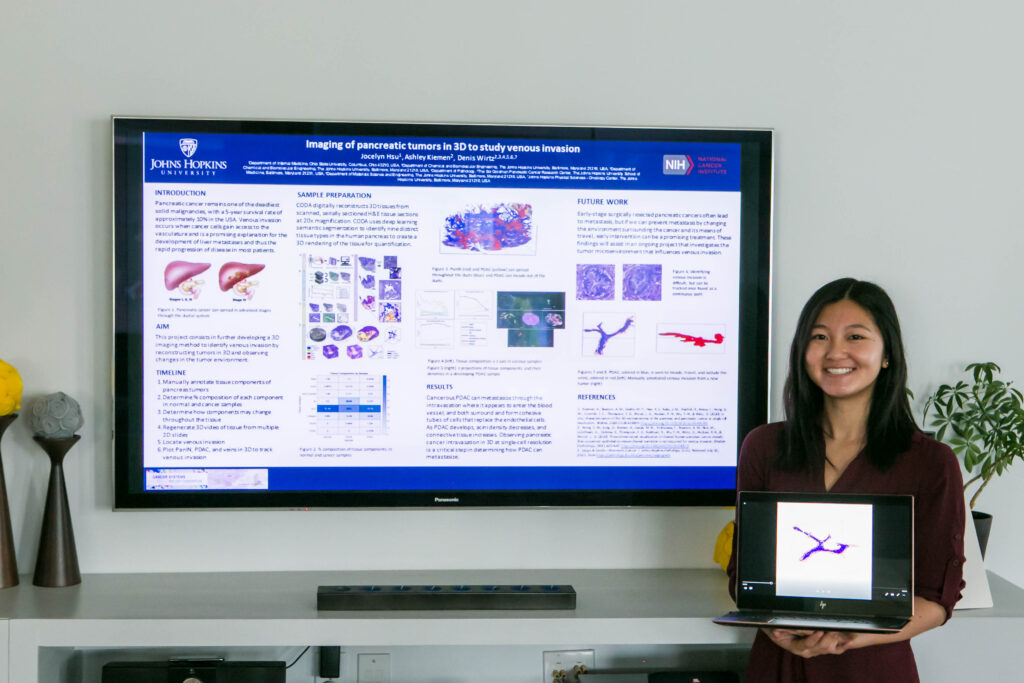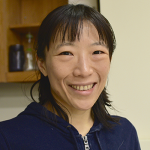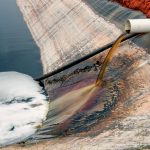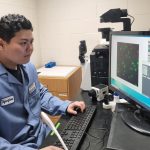Q&A with PSON Intern Jocelyn Hsu

Every summer, The National Cancer Institute’s Cancer Systems Biology Consortium & Physical Science Oncology Network (PSON) hosts a summer intern at their various locations in their Summer Research Program. The program is designed specifically for rising junior and senior undergraduate students who wish to gain experience in the interdisciplinary fields of systems biology and physical oncology.
This past summer, the Physical Sciences-Oncology Center within the Institute for NanoBioTechnology, a member of the PSON, hosted virtual intern Jocelyn Hsu from The Ohio State University. Hsu worked in Denis Wirtz’s lab to investigate venous invasion in pancreatic cancer using a novel 3D tumor reconstructing model called CODA. Meet Hsu and learn how her experience helped to shape her career plans.
Hsu also wrote a blog post for her home institution describing her research experience.
Tell us a little about yourself.
I am a rising senior at Ohio State University studying biochemistry and doing research to identify biomarkers of CDK4-inhibitor resistance in patients with dedifferentiated liposarcoma. I am passionate about teaching and have worked with children in Camp Kesem, conducting science experiments with elementary students and with college students as a general chemistry lab teaching associate. Beyond teaching, I strive to advocate for students by serving on multiple student boards at my home institution. With my interest in youth empowerment and cancer biology, I plan on pursuing a PhD in cancer biology to become a professor and researcher. In my free time, I play the flute in my university’s athletic band, enjoy eating and making food, and dancing.
Why did you apply for the PSON summer internship? What opportunities did it provide you?
My current research involves cell culture and wet lab techniques to collect data, but this summer I wanted to learn how to program and analyze data. I learned about image analysis techniques in MATLAB and established 3D modeling systems to better understand venous invasion in pancreatic cancer. This introduced me to pancreatic cancer and metastasis, as well as the importance of combining computer science with biology. I presented my results with the lab team every other week, which improved my presentation and communication methods.
This internship was unique because students from across the country could join different NCI-sponsored laboratories at various universities rather than all studying at a single site. The internship teaches the R-studio programming language to students with little coding experience and creates a final challenge to apply what we learned. So, we learned R-studio with each other, but we also did our research at our host institutes. The PSON group also had a virtual two-day conference where we shared our research, heard from patient advocates, and learned about science communication. This was one of my favorite parts of the summer as I got to know the other PSON fellows, prepare a poster and share my research, and learn about other students’ research who also used computational tools to understand cancer. The final project was a hackathon-style project where groups of two to three students were given a dataset to determine the druggable genes for enzalutamide-resistant prostate cancer. This project creatively combined the summer’s lessons and gave us space to present our ideas.
Tell us about your research project and relationship with your mentors this summer.
I worked with Denis Wirtz’s team to identify and understand venous invasion in pancreatic cancer using an established 3D tumor reconstructing model in MATLAB called CODA. CODA can be used to identify venous invasion, where the cancer can traverse and occlude blood vessels. I spent most of my time trying to identify the tumor microenvironment of pancreatic cancer to understand how it metastasizes. The first two weeks I annotated 2D H&E-stained sections of a pancreas biopsy. I circled examples of various tissue components such as fat, acini, cancer, and blood vessels. MATLAB used these examples to identify tissue components on its own without manual annotations. Then, I used MATLAB to “stack” the 2D sections on top of each other to recreate the 3D biopsy.
My mentor, Ashley Kieman, a PhD student, taught me how to use MATLAB and data retrieval tools. She was available for questions and comments through Slack and we met once a week over Zoom. Every two weeks, I prepared a Power Point of my findings to present to the Wirtz computational team, made of about seven people, and received feedback from the group. Then, I also heard from other scientists in the Wirtz lab during full lab meetings every two weeks.
Tell us about your experience interning remotely.
On Mondays I met with my mentor for a 30-minute Zoom meeting where we discussed the week’s goals. Otherwise I worked on my own time and asked questions using Slack or Zoom. On Tuesdays and Thursdays, the PSON fellows met on Zoom for biweekly lectures about R-studio. Every other Friday, the Wirtz team had our lab meetings.
Besides research, what activities did you engage in during your internship?
I continued to teach and do research at my home institute. I also participated in the Vanderbilt Summer Science Academy (VSSA) and the Leadership Alliance Virtual Professional Development (VPD) Series. Vanderbilt’s VSSA was a seminar series that brought in individuals from all stages of the PhD timeline to talk about their journey. Similarly, the Leadership Alliance VPD Series brought in speakers to talk about their journey and ethics in research, and they had recruitment events too. The PSON fellows also learned R-studio, participated in an online conference, and worked on a final hackathon challenge.
Has your experience this summer changed your research or career plans?
I am grateful for this research opportunity. This was the first experience researching outside of my home institute and it was very impactful to see how other teams research a different type of cancer and with different methods. I currently work in a wet lab environment and my lab uses bioinformatics to understand sarcoma. Now, I have experience using MATLAB and R-studio to interpret and analyze the data that I collect from cell cultures. Although I enjoyed learning to program, my interests are still related to cell culture and wet lab methods. I have a better appreciation for programming languages and will apply what I learned in my research and classes. This experience has influenced me to continue research and pursue a career in academia because of how impactful cancer research is and how I enjoy communicating scientific findings with others.





